Recombinant Human CDK16 protein(Met1-Phe496), GST-tagged
| Cat.No. : | CDK16-952H |
| Product Overview : | Recombinant Human PCTK1 (Q00536-1) (Met 1-Phe 496) was expressed in Insect Cells, fused with the GST tag at the N-terminus. |
- Specification
- Gene Information
- Related Products
- Case Study
- Application
- Download
| Species : | Human |
| Source : | Insect Cells |
| Tag : | GST |
| Protein Length : | Met1-Phe496 |
| Form : | Supplied as sterile 20mM Tris, 500mM NaCl, pH 7.4, 2mM GSH, 0.5mM PMSF. |
| Molecular Mass : | The recombinant human PCTK1/GST chimera consists of 720 amino acids and has a predicted molecular mass of 82 kDa. It migrates as an approximately 73 kDa band in SDS-PAGE under reducing conditions. |
| Endotoxin : | < 1.0 EU per μg of the protein as determined by the LAL method |
| Purity : | > 82 % as determined by SDS-PAGE |
| Storage : | Samples are stable for up to twelve months from date of receipt at -20°C to -80°C. Store it under sterile conditions at -20°C to -80°C. It is recommended that the protein be aliquoted for optimal storage. Avoid repeated freeze-thaw cycles. |
| Concentration : | Please refer to the datasheet for detailed information. |
| Gene Name | CDK16 cyclin-dependent kinase 16 [ Homo sapiens ] |
| Official Symbol | CDK16 |
| Synonyms | CDK16; cyclin-dependent kinase 16; PCTAIRE protein kinase 1 , PCTK1; FLJ16665; PCTAIRE; PCTAIRE1; PCTGAIRE; serine/threonine protein kinase; PCTAIRE-motif protein kinase 1; cell division protein kinase 16; serine/threonine-protein kinase PCTAIRE-1; PCTK1; |
| Gene ID | 5127 |
| mRNA Refseq | NM_001170460 |
| Protein Refseq | NP_001163931 |
| MIM | 311550 |
| UniProt ID | Q00536 |
| ◆ Recombinant Proteins | ||
| CDK16-115H | Active Recombinant Human PCTK1 (CDK16)/CyclinY, GST-tagged | +Inquiry |
| CDK16-340H | Recombinant Human cyclin-dependent kinase 16, His-tagged | +Inquiry |
| CDK16-1518M | Recombinant Mouse CDK16 Protein, His (Fc)-Avi-tagged | +Inquiry |
| CDK16-29485TH | Recombinant Human CDK16, His-tagged | +Inquiry |
| CDK16-3147H | Recombinant Human CDK16 Protein, MYC/DDK-tagged | +Inquiry |
| ◆ Cell & Tissue Lysates | ||
| CDK16-611HCL | Recombinant Human CDK16 cell lysate | +Inquiry |
Case 1: Wei PL, et al. Int J Mol Sci. 2023
Colorectal cancer (CRC) is a major global health issue. Our study highlights the role of PCTK1, a kinase, in CRC. Patients with higher PCTK1 levels showed better survival rates. PCTK1 was found to curb cancer cell growth and stemness, while its absence increased tumor growth and drug resistance. These effects are linked to changes in apoptosis molecules and the BMPR1B-Smad signaling pathway. This pathway is crucial in managing cancer progression and treatment response, positioning PCTK1 as a promising target for improving CRC outcomes.
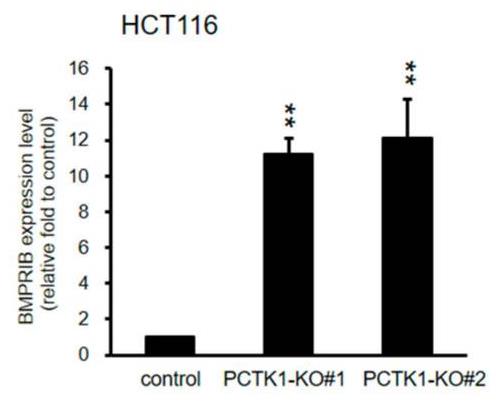
Fig1. The expression of BMPR1B in HCT 116 PCTK1-KO cells was determined through qPCR.
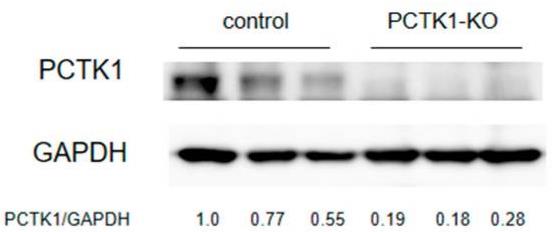
Fig2. PCTK1 expression of HCT 116 xenograft tumors was determined through Western blotting.
Case 2: Li X, et al. J Exp Clin Cancer Res. 2022
CDK16, a kinase linked to the Cyclin Y family, is found to be highly expressed in breast cancer, especially triple-negative breast cancer (TNBC). Its high levels are associated with worse patient outcomes. Research shows that CDK16 boosts TNBC cell growth and migration in lab settings and drives tumor growth and spread in living models. Knockdown or inhibition of CDK16 effectively slows down TNBC progression. CDK16’s role in tumor development involves phosphorylating PRC1, affecting mitosis. These findings suggest that targeting CDK16 could be a promising strategy for treating TNBC.
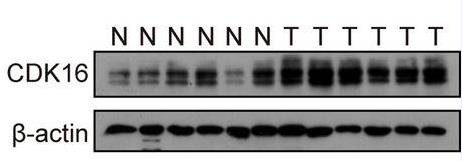
Fig1. Immunoblot analysis of CDK16 protein expression in clinical non-cancerous (N) and TNBC (T) samples.
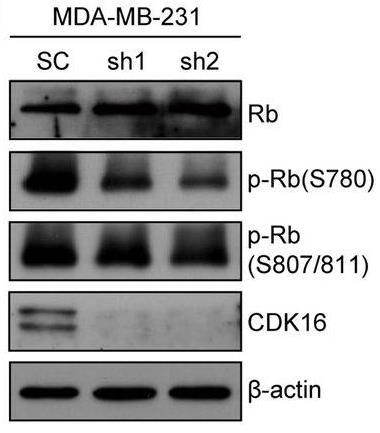
Fig2. Immunoblot analysis of total Rb and p-Rb expression in MDA-MB-231 cells treated with CDK16-KD.
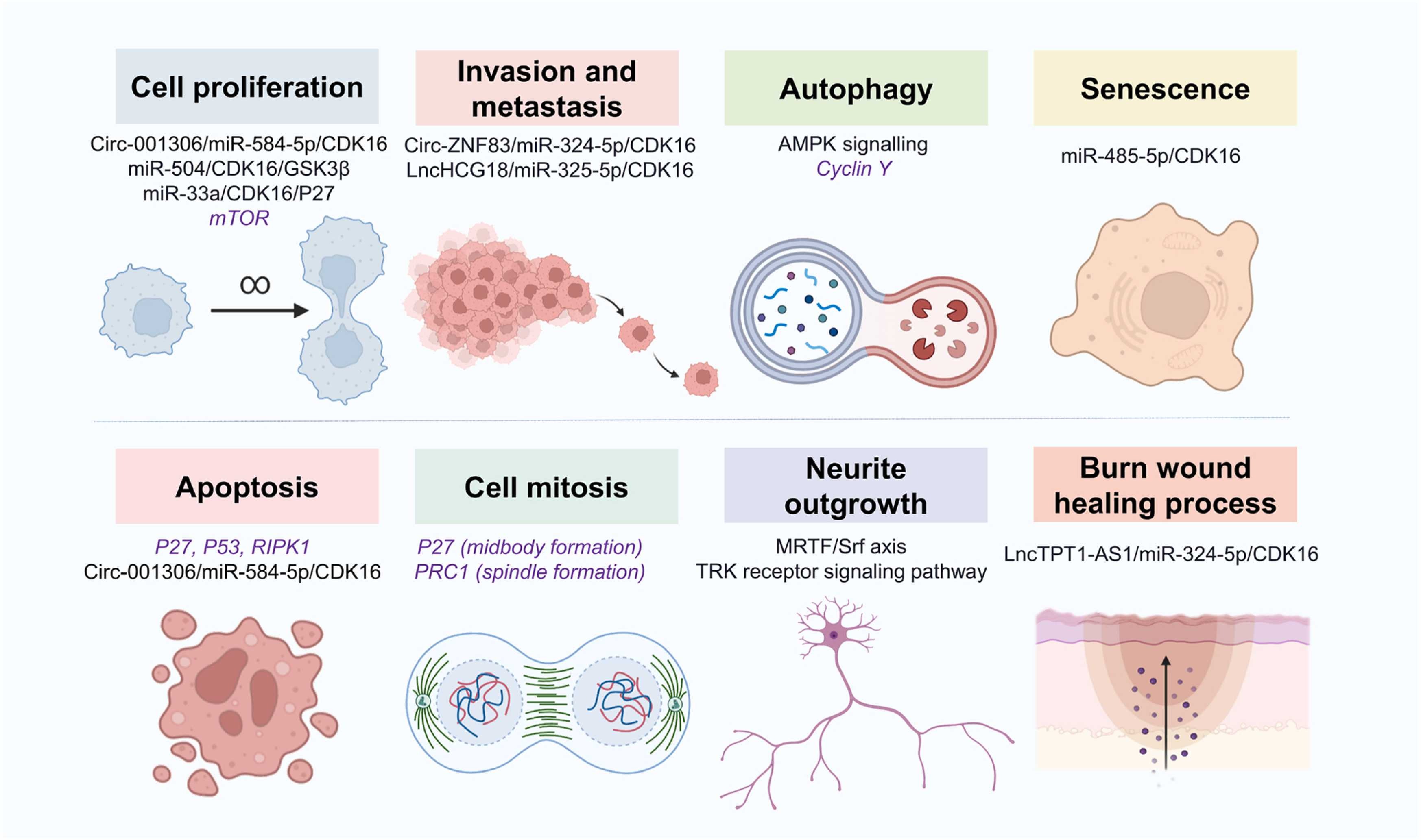
Fig1. CDK16 participates in many biological functions through its interaction with many molecules and signaling pathways. (Xiao Wang, 2023)
Not For Human Consumption!
Inquiry
- Reviews
- Q&As
Ask a Question for All CDK16 Products
Required fields are marked with *
My Review for All CDK16 Products
Required fields are marked with *
Inquiry Basket


